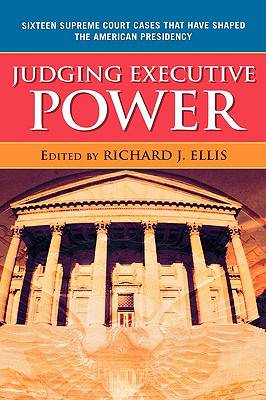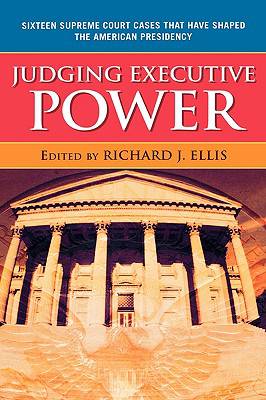
- Afhalen na 1 uur in een winkel met voorraad
- Gratis thuislevering in België vanaf € 30
- Ruim aanbod met 7 miljoen producten
- Afhalen na 1 uur in een winkel met voorraad
- Gratis thuislevering in België vanaf € 30
- Ruim aanbod met 7 miljoen producten
Zoeken
Judging Executive Power
Sixteen Supreme Court Cases that Have Shaped the American Presidency
Richard J Ellis
Hardcover | Engels
€ 254,45
+ 508 punten
Uitvoering
Omschrijving
Judging Executive Power introduces students to sixteen important Supreme Court cases that have shaped the power of the American presidency. The cases selected include the removal power, executive privilege, executive immunity, the line-item veto, as well as a president's wartime powers from the Civil War to the War on Terror. The book both brings the courts back into the teaching of the American presidency and securely fixes landmark judicial opinions within their political and historical context.
Specificaties
Betrokkenen
- Auteur(s):
- Uitgeverij:
Inhoud
- Aantal bladzijden:
- 244
- Taal:
- Engels
Eigenschappen
- Productcode (EAN):
- 9780742565128
- Verschijningsdatum:
- 16/03/2009
- Uitvoering:
- Hardcover
- Formaat:
- Genaaid
- Afmetingen:
- 152 mm x 229 mm
- Gewicht:
- 526 g

Alleen bij Standaard Boekhandel
+ 508 punten op je klantenkaart van Standaard Boekhandel
Beoordelingen
We publiceren alleen reviews die voldoen aan de voorwaarden voor reviews. Bekijk onze voorwaarden voor reviews.







